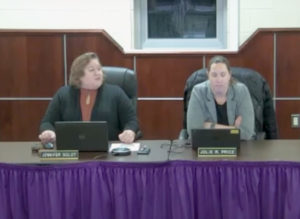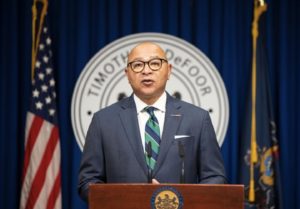How Pennsylvania schools hide funds to raise taxes without breaking the law
(The Center Square) – The auditor general published a 200-page report Monday that provided more insight into how 12 school districts raised taxes while hiding nearly $400 million funds – without…

(The Center Square) – The auditor general published a 200-page report Monday that provided more insight into how 12 school districts raised taxes while hiding nearly $400 million funds – without violating a single law.
The audit walks through the budgetary “shell game” officials played by committing funds toward capital projects and pension costs – without actually spending any money – and keeping general fund balances low enough to ensure schools would avoid a public vote on tax increases.
As school districts developed their upcoming fiscal year budgets, qualifying for a tax referendum exception from the Pennsylvania Department of Education (PDE) depended upon the general fund. If unreserved, undesignated funds fell below 8% of estimated budget expenditures, districts could get an exception and raise taxes without receiving a public vote of approval.
None of the 12 districts examined violated the state’s Public School Code (PSC), according to the audit. Collectively, officials held back $360 million while raising taxes 37 out of a possible 48 times between 2018 and 2021.
It’s possible, too, that many more of Pennsylvania’s 500 school districts use this loophole. When school districts hold excess funds and raise taxes, the revenues come from residents.
“The overall results of this audit should raise concerns due to the districts’ common yet questionable practices that are placing an excess burden on taxpayers across Pennsylvania,” the report noted. “We are hopeful that the General Assembly and PDE will consider taking a close look at these practices.”
Abington School District illustrates the strategy well, according to the report. Between 2018 and 2021, the district’s revenues and expenditures ranged from $150 million to $172 million. Budgetary practices, though, significantly underestimated the money the district had on hand – often by $10 million to $20 million.
The school board then designated the entire balance in the general fund as committed, rather than leaving portions unassigned. This lowered the balance below the 8% threshold set by state law and qualified the district to apply for an exception to raise taxes without a public vote.
When school boards commit funds, they are not required to spend them. However, if funds are left unassigned, districts would not qualify for a referendum exception.
The report notes doing so violates best business practices, and the board should reconsider leaving balances unassigned to cover unexpected costs and emergencies.
While Abington requested a referendum exception in 2018, 2019, and 2021, taxes were only raised in 2018. That year, the district approved an increase of nearly $603,000 for pension obligations, even though it already committed $7.5 million from the general fund for the same expense.
The report does not specify how the district spent the additional money, though it states its pension obligations were adequately funded and the increase was an “unnecessary burden on district taxpayers.”
In its response to the audit, Abington district officials argued that the ability to raise taxes was necessary because it wasn’t clear how much the district would receive in state and federal funding, not “what its own tax base will be.”
“Given the dearth of reliable information available during the preliminary budget window, the district has generally viewed it as prudent to maintain flexibility early in the budget process,” Abington School District Superintendent Jeffrey Fecher wrote.
He also raised concerns that classifying unspent committed funds as unassigned could make future estimates difficult.
“The district does not agree that committed funds not spent in one year should necessarily be considered unassigned fund balance as such a practice may arbitrarily undermine the district’s ability to plan for contingencies,” Fecher wrote.
The auditor’s office said the district’s actions misled the taxpayers and raised $2.6 million in tax revenues while leaving more than $38 million untouched.
If the budget threshold was tied to unrestricted funds – which includes committed and assigned obligations – less than half of the 12 districts would have raised taxes just 11 times, during the four-year period.



